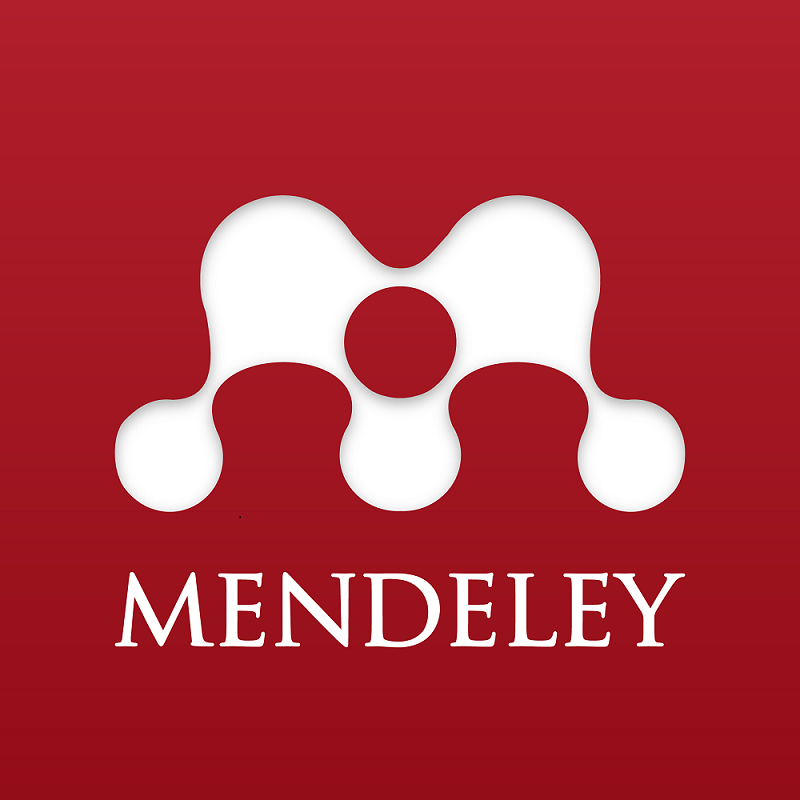TINGKAT KEMATANGAN GURU DAN SISWA PENDIDIKAN VOKASIONAL DALAM MENERAPKAN KETERAMPILAN ABAD 21
DOI:
https://doi.org/10.37304/jptm.v4i1.5089Keywords:
21st Century Skills, Teachers, Students, Vocational EducationAbstract
Until now, the maturity level of teachers and students in vocational education in applying 21st century skills in learning is still a prolonged polemic. This study aims to: (1) analyze the maturity level of teachers and students in applying 21st century skills; (2) analyze the difference in the maturity level of 21st century skills between teachers and students in implementing vocational learning. The research uses an exploratory descriptive method with a quantitative approach adopting the Hoy and Adam design. This study involved 598 samples which were divided into teacher and student subjects. Collecting data using a closed questionnaire technique with a 4-point Likert scale. Data were analyzed descriptively quantitatively to describe the percentage of maturity level and independent sample t-test to determine the difference in maturity between teachers and students. The results showed: (1) all 21st century skills consisting of problem solving, critical thinking, creativity, collaboration, communication, and digital literacy were at a low level of maturity; (2) the difference in the level of maturity experienced by teachers and students is quite significant in all competencies. Currently, 21st century skills in managing and following learning in vocational education must be strengthened again. Various training and mentoring for teachers and students should also be improved.
Downloads
References
Agustini, D., Lian, B., & Sari, A. P. (2020). School’s Strategy for Teacher’s Professionalism Through Digital Literacy in the Industrial Revolution 4.0. INTERNATIONAL JOURNAL OF EDUCATIONAL REVIEW, 2(2), 160–173. https://doi.org/10.33369/ijer.v2i2.10967
Ahmadifar, M., Saeidipour, B., Sarmadi, M. R., & Farajollahi, M. (2020). Investigate Online Collaborative Learning Based on the Students Differences of Individual, to Enhance Creativity in Online Small Groups. Journal of Economic and Social Research, 19(1), 18–26.
Billett, S. (2011). Vocational Education: Purposes, Traditions and Prospects. Springer. https://doi.org/10.1007/978-94-007-1954-5
Budi, S., Darmawan, H., & Saputro, M. (2020). Analysis of Mathematic Communication Ability to be Reviewed From Student Learning Creativity In Statistical Materials. Daya Matematis: Jurnal Inovasi Pendidikan Matematika, 8(1), 161–166. https://doi.org/10.26858/jds.v8i1.13325
Chalkiadaki, A. (2018). A systematic literature review of 21st century skills and competencies in primary education. International Journal of Instruction, 11(3), 1–16. https://doi.org/10.12973/iji.2018.1131a
Cheng, S. C., She, H. C., & Huang, L. Y. (2018). The Impact of Problem-Solving Instruction on Middle School Students’ Physical Science Learning: Interplays of Knowledge, Reasoning, and Problem Solving. Eurasia Journal of Mathematics, Science and Technology Education, 14(3), 731–743. https://doi.org/10.12973/ejmste/80902
Chu, S. K. W., Reynolds, R. B., Tavares, N. J., & Lee, C. W. Y. (2017). 21st Century Skills Development Through Inquiry-Based Learning. Springer Science+Business Media. https://doi.org/10.1007/978-981-10-2481-8
Clark, L., & Winch, C. (2007). Vocational Education : International Approaches, Developments and Systems. Routledge.
de la Peña Álvarez, C. (2019). Importance of Creativity and Learning in Preservice Teachers. Electronic Journal of Research in Educational Psychology, 17(48), 267–294. https://doi.org/10.25115/ejrep.v17i48.2246
Dewi, R. S., Fahrurrozi, Hasanah, U., & Dj, M. Z. (2021). Analysis Study of Factors Affecting Students ’Digital Literacy Competency. İlköğretim Online, 20(3), 424–431. https://doi.org/10.17051/ilkonline.2021.03.42
Dowell, N. M. M., Lin, Y., Godfrey, A., & Brooks, C. (2020). Exploring The Relationship between Emergent Sociocognitive Roles, Collaborative Problem-Solving Skills, and Outcomes: A Group Communication Analysis. Journal of Learning Analytics, 7(1), 38–57. https://doi.org/10.18608/jla.2020.71.4
Epçaçan, C. (2019). A Review on The Relationship Between Critical Thinking Skills and Learning Domains of Turkish Language. Educational Research and Reviews, 14(3). https://doi.org/10.5897/err2018.3658
Erkan, A. (2019). Impact of Using Technology on Teacher-Student Communication/Interaction: Improve Students Learning. World Journal of Education, 9(4), 30–40. https://doi.org/10.5430/wje.v9n4p30
Fan, M., & Cai, W. (2020). How Does a Creative Learning Environment Foster Student Creativity? An Examination on Multiple Explanatory Mechanisms. Current Psychology, 1–10. https://doi.org/10.1007/s12144-020-00974-z
Faridi, A., Bahri, S., & Nurmasitah, S. (2016). The Problems of Applying Student Centered Syllabus of English in Vocational High Schools in Kendal Regency. English Language Teaching, 9(8), 231–240. https://doi.org/10.5539/elt.v9n8p231
Frank, T., & Castek, J. (2017). From Digital Literacies to Digital Problem Solving: Expanding Technology-rich Learning Opportunities for Adults. Journal of Research and Practice for Adult Literacy, Secondary, and Basic Education, 4(2), 66–70.
Fusco, N. M., Elze, D. E., Antonson, D. E., Jacobsen, L. J., Lyons, A. G., Symons, A. B., & Ohtake, P. J. (2020). Creating a Film to Teach Health Professions Students The Importance of Interprofessional Collaboration. American Journal of Pharmaceutical Education, 84(4), 507–513. https://doi.org/10.5688/ajpe7638
Gafurov, I. R., Safiullin, M. R., Akhmetshin, E. M., Gapsalamov, A. R., & Vasilev, V. L. (2020). Change of The Higher Education Paradigm in The Context of Digital Transformation: From Resource Management to Access Control. International Journal of Higher Education, 9(3), 71–85. https://doi.org/10.5430/ijhe.v9n3p71
Haq, M. N., & Murdiono, M. (2019). Problematika Guru dalam Penerapan Pendekatan Saintifik pada Pembelajaran PPKn. Jurnal Civics: Media Kajian Kewarganegaraan, 16(2), 165–176. https://doi.org/10.21831/jc.v16i2.24603
Heong, Y. M., Hamdan, N., Ching, K. B., Kiong, T. T., & Azid, N. (2020). Development of Integrated Creative and Critical Thinking Module in Problem-Based Learning to Solve Problems. International Journal of Scientific and Technology Research, 9(3), 6567–6571.
Hermann, M. A., Gorlewski, J., Brookover, D., Walsh, R., Kozachuk, L., Deitz, M., & Ciminelli, E. (2020). Policy, practice, and parenthood: a study of teacher mothers. Educational Studies, 1–19. https://doi.org/10.1080/03055698.2020.1834358
Hidayati, N., Zubaidah, S., Suarsini, E., & Praherdhiono, H. (2019). Examining the Relationship between Creativity and Critical Thinking through Integrated Problem-based Learning and Digital Mind Maps. Universal Journal of Educational Research, 7(9A), 171–179. https://doi.org/10.13189/ujer.2019.071620
Hoy, W. K., & Adams, C. M. (2016). Quantitative Research in Education: A Primer (2nd ed.). SAGE Publications, Inc.
Iñiguez-Berrozpe, T., & Boeren, E. (2020). Twenty-First Century Skills for All: Adults and Problem Solving in Technology Rich Environments. Technology, Knowledge and Learning, 25(4), 929–951. https://doi.org/10.1007/s10758-019-09403-y
Jolly, L., & White, S. (2016). Communication, Collaboration, and Enhancing the Learning Experience: Developing a Collaborative Virtual Enquiry Service in University Libraries in the North of England. New Review of Academic Librarianship, 22(2–3), 176–191. https://doi.org/10.1080/13614533.2016.1156002
Jonassen, D. H. (2011). Leraning to Solve Problems: A Handbook for Designing Problem-Solving Learning Environments. Routledge.
Jones, R. H., & Hafner, C. A. (2012). Understanding Digital Literacies: A Practical Introduction. In Understanding Digital Literacies: A Practical Introduction. https://doi.org/10.4324/9780203095317
Kardoyo, Nurkhin, A., Muhsin, & Pramusinto, H. (2020). Problem-Based Learning Strategy: Its Impact on Students’ Critical and Creative Thinking Skills. European Journal of Educational Research, 9(3), 1141–1150. https://doi.org/10.12973/EU-JER.9.3.1141
Khalid, M., Saad, S., Abdul Hamid, S. R., Ridhuan Abdullah, M., Ibrahim, H., & Shahrill, M. (2020). Enhancing Creativity and Problem Solving Skills through Creative Problem Solving in Teaching Mathematics. Creativity Studies, 13(2), 270–291. https://doi.org/10.3846/cs.2020.11027
Kumar, M., & Liu, Z. (2019). Classroom Management Strategies and Student Learning. Advanced Journal of Social Science, 5(1), 65–72. https://doi.org/10.21467/ajss.5.1.65-72
Lee, M. F., Sohod, S. N. M., & Ab Rahman, A. (2019). Exploring The Mastery Level of Critical Thinking and Problem Solving Skill among The Technical Undergraduate. Journal of Technical Education and Training, 11(3), 9–14. https://doi.org/10.30880/jtet.2019.11.03.002
Malik, R. S. (2018). Educational Challenges in 21st Century and Sutainable Development. Journal of Sustainable Development Education and Research, 2(1), 9–20. https://doi.org/10.17509/jsder.v2i1.12266
Murtiyasa, B., & Al Karomah, I. I. (2020). The Impact of Learning Strategy of Problem Solving and Discovery towards Learning Outcomes Reviewed from Students Learning Motivation. Universal Journal of Educational Research, 8(9), 4105–4112. https://doi.org/10.13189/ujer.2020.080936
Nonthamand, N., & Songkhla, J. N. (2018). The Correlation of Open Learning, Collaboration, Learning Tools, and Creative Problem Solving by Graduate Students in Thailand. International Journal of Emerging Technologies in Learning, 13(9), 280–289. https://doi.org/10.3991/ijet.v13i09.7835
Nurtanto, M., Kholifah, N., Masek, A., Sudira, P., & Samsudin, A. (2021). Crucial Problems in Arranged The Lesson Plan of Vocational Teacher. International Journal of Evaluation and Research in Education (IJERE), 10(1), 345–354. https://doi.org/10.11591/ijere.v10i1.20604
Pavlova, M. (2009). Technology and Vocational Education for Sustainable Development. Springer Science Business Media B.V.
Putri, A. U., Rusyati, L., & Rochintaniawati, D. (2018). The Impact of Problem-Solving Model on Students’ Concept Mastery and Motivation in Learning Heat Based on Gender. Journal of Science Learning, 1(2), 71–76. https://doi.org/10.17509/jsl.v1i2.9793
Rindu, I., & Ariyanti, A. (2017). Teacher’s Role in Managing the Class during Teaching and Learning Process. Script Journal: Journal of Linguistic and English Teaching, 2(1), 83–100. https://doi.org/10.24903/sj.v2i1.77
Rizaldi, D. R., Nurhayati, E., & Fatimah, Z. (2020). The Correlation of Digital Literation and STEM Integration to Improve Indonesian Students’ Skills in 21st Century. International Journal of Asian Education, 1(2), 73–80. https://doi.org/10.46966/ijae.v1i2.36
Ross, P. K., Ressia, S., & Sander, E. J. (2017). Work in the 21st Century. In Work in the 21st Century. Emerald Publishing. https://doi.org/10.1108/9781787145771
Santosa, D. T., & Us, T. (2016). Faktor-Faktor penyebab rendahnya motivasi belajar dan solusi penanganan pada siswa kelas XI jurusan Teknik Sepeda Motor. Jurnal Pendidikan Teknik Otomotif, 13(2), 14–21.
Santoso, H., Abdinagoro, S. B., & Arief, M. (2019). The Role of Digital Literacy in Supporting Performance through Innovative Work Behavior: The Case of Indonesia’s Telecommunications Industry. International Journal of Technology, 10(8), 1558–1566. https://doi.org/10.14716/ijtech.v10i8.3432
Sari, K. A., Prasetyo, Z. K., & Wibowo, W. S. (2017). DEVELOPMENT OF SCIENCE STUDENT WORKSHEET BASED ON PROJECT BASED LEARNING MODEL TO IMPROVE COLLABORATION AND COMMUNICATION SKILLS OF JUNIOR HIGH SCHOOL STUDENT. Journal of Science Education Research, 1(1), 1–6. https://doi.org/10.21831/jser.v1i1.16178
Sawitri, E., Astiti, M. S., & Fitriani, Y. (2019). Hambatan Dan Tantangan Pembelajaran. Seminar Nasional Pendidikan Program Pascasarjana Universitas PGRI Palembang, 202–213.
Sharma, K., Leftheriotis, I., & Giannakos, M. (2020). Utilizing Interactive Surfaces to Enhance Learning, Collaboration and Engagement: Insights from Learners’ Gaze and Speech. Sensors (Switzerland), 20(7), 1–27. https://doi.org/10.3390/s20071964
Sholihah, T. M., & Lastariwati, B. (2020). Problem Based Learning to Increase Competence of Critical Thinking and Problem Solving. Journal of Education and Learning (EduLearn), 14(1), 148–154. https://doi.org/10.11591/edulearn.v14i1.13772
Stuchlikova, L. (2016). Challenges of Education in The 21st Century. ICETA 2016 - 14th IEEE International Conference on Emerging ELearning Technologies and Applications, Proceedings, 335–340. https://doi.org/10.1109/ICETA.2016.7802072
Sudira, P. (2017). Tvet Abad XXI : Filosofi, Teori, Konsep, dan Strategi Pembelajaran Vokasional. UNY Press.
Sutrisno, V. L. P., & Siswanto, B. T. (2016). Faktor-Faktor yang mempengaruhi Hasil belajar Siswa pada Pembelajaran Praktik Kelistrikan Otomotif SMK di Kota Yogyakarta. Jurnal Pendidikan Vokasi, 6(1), 111–120. https://doi.org/10.21831/jpv.v6i1.8118
Tan, O.-S. (2009). Problem Based Learning and Creativity. Cengage Learning Asia Pte Ltd.
Trilling, B., & Fadel, C. (2009). 21st Century Skills: Learning for Life in Our Times. Jossey-Bass.
van Laar, E., van Deursen, A. J. A. M., van Dijk, J. A. G. M., & de Haan, J. (2019). Determinants of 21st-century digital skills: A large-scale survey among working professionals. Computers in Human Behavior, 93–104. https://doi.org/10.1016/j.chb.2019.06.017
Wagiran, Pardjono, & Sofyan, H. (2020). What industry needs of vocational school graduate competence in the era of industrial revolution 4.0. International Journal of Advanced Science and Technology, 29(5), 2459–2470.
Wagiran, W. (2014). Metodologi Penelitian Pendidikan. Deepublish.
Wahyudi, W., Waluya, S. B., Suyitno, H., & Isnarto, I. (2020). Schemata and Creative Thinking Ability in Cool-Critical-Creative-Meaningful (3CM) Learning. International Journal of Sustainability in Higher Education, 22(1), 1–28. https://doi.org/10.1108/IJSHE-06-2019-0198
Yakubu, A. R. (2020). Using the Constructivist Approach to Enhance Students’ Competence in Solving Word Problems Involving Linear Equations in One Variable. International Journal of Innovative Research and Development, 9(1), 1–8. https://doi.org/10.24940/ijird/2020/v9/i1/jan20007












